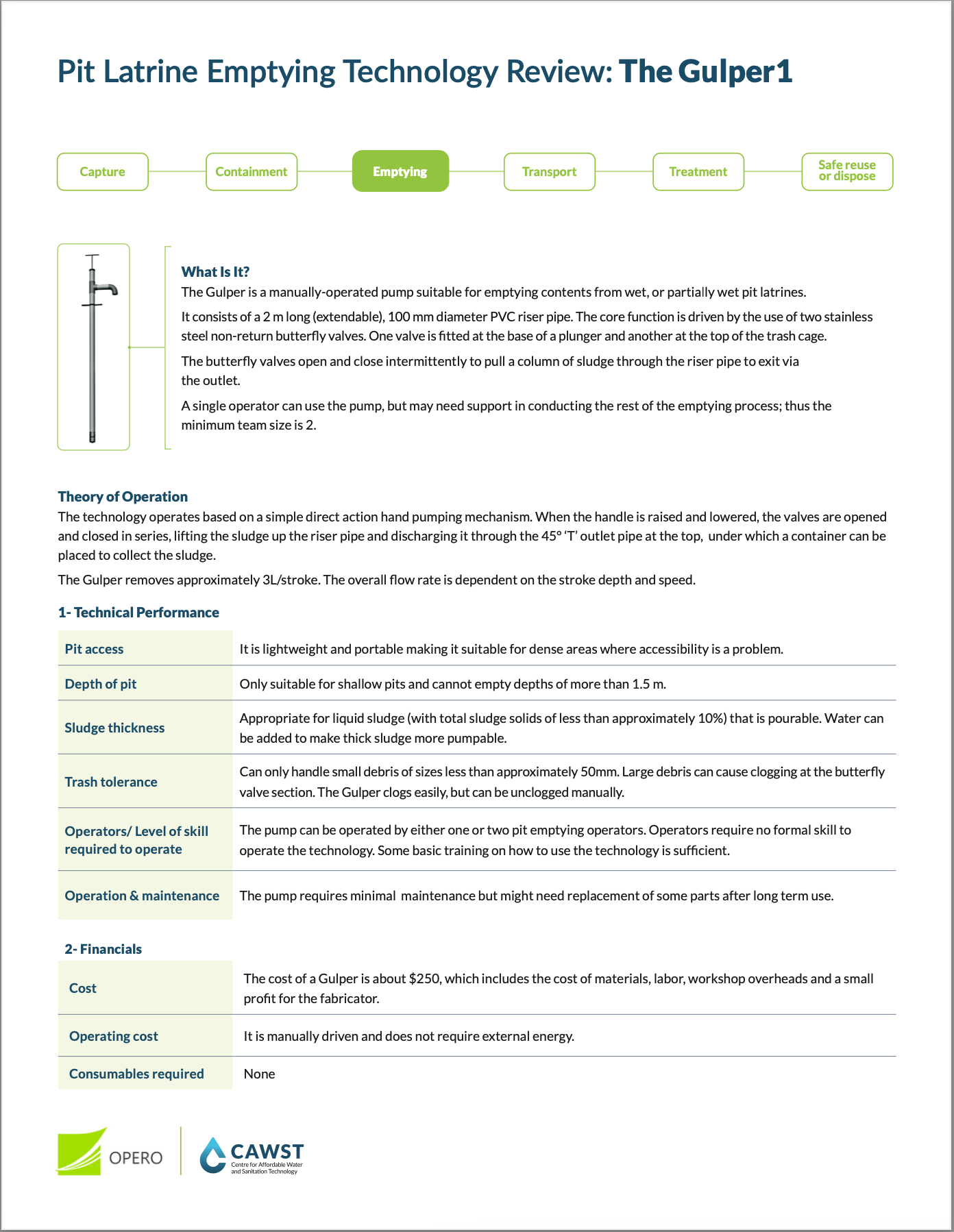
Pit Latrine Emptying Technology Review: The Gulper1
The technical brief, developed by OPERO Services and CAWST, provides an in-depth overview of the Gulper, a manually-operated pump designed for emptying wet or partially wet pit latrines. It details the technology's theory of operation, including its hand-pumping mechanism and sludge removal process. The brief evaluates the Gulper's technical performance, financial aspects, safety and hygiene considerations, market readiness, and necessary add-ons. It highlights key points such as pit access, depth limitations, sludge thickness, trash tolerance, operator requirements, maintenance needs, cost, and market availability. Additionally, it offers insights into the Gulper's design variations, prevailing version, and availability of online resources for fabrication. The document includes illustrations, diagrams, and links for further information on the Gulper's specifications and usage.
Pit Latrine Emptying Technology Review: The Gulper1
The technical brief, developed by OPERO Services and CAWST, provides an in-depth overview of the Gulper, a manually-operated pump designed for emptying wet or partially wet pit latrines. It details the technology's theory of operation, including its hand-pumping mechanism and sludge removal process. The brief evaluates the Gulper's technical performance, financial aspects, safety and hygiene considerations, market readiness, and necessary add-ons. It highlights key points such as pit access, depth limitations, sludge thickness, trash tolerance, operator requirements, maintenance needs, cost, and market availability. Additionally, it offers insights into the Gulper's design variations, prevailing version, and availability of online resources for fabrication. The document includes illustrations, diagrams, and links for further information on the Gulper's specifications and usage.
Format:
Adobe PDF
Select a language
Topics
Co-developed with
Supporting resources
Collections
Need help?
Can’t find what you need? Have more questions about a topic? Need advice on how to use a resource? Chat with a CAWST advisor.
Contact usAbout CAWST
CAWST is a Canadian charity and licensed engineering firm. We address the global need for safe drinking water and sanitation by building local knowledge and skills on household solutions people can implement themselves.